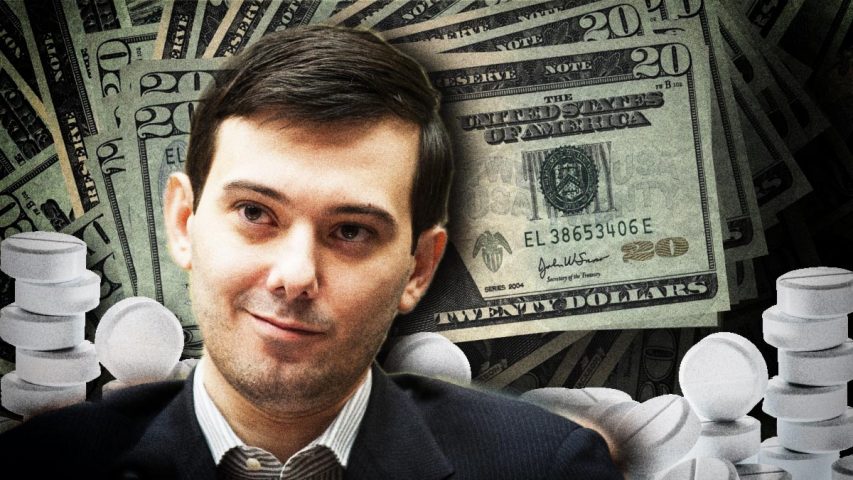- Have any questions? Contact us!
- info@dr-rath-foundation.org

Dutch researchers plan major study using supplements to treat anger management problems in prisoners
September 17, 2015
Putting war before human health: World’s weekly military expenditure exceeds annual cost of ending global hunger
October 1, 2015Don’t be distracted by the $750 pharma pill scandal: Drugs won’t solve the global healthcare crisis – at ANY price!

Martin Shkreli, a former hedge fund manager and now head of Turing Pharmaceuticals
The reputation and credibility of the pharma industry sank to a new low this week with news that the price of Daraprim (Pyrimethamine), an anti-parasitic drug that is on the World Health Organization’s list of essential medicines, had been raised from $13.50 to $750 per tablet. Marketed since the 1950s, the drug was acquired last month by Turing Pharmaceuticals, a start-up company run by Martin Shkreli, a former hedge fund manager. Astonishingly, with even the global mass media seemingly aghast at this latest case of pharma greed, Shkreli shamelessly attempted to portray the 5000% price rise as “altruistic”.
To seasoned observers it will be immediately apparent that this story provides a good illustration of why we refer to the pharma industry as the “business with disease”. Through the ownership and control of synthetic chemicals portrayed as “medicines”, drug manufacturers can arbitrarily define their profits. Functioning as corporate stakeholders feeding a ruthless and cynical investment industry that is driven by shareholder value, improving human health is not their focus. For the robber barons behind this industry, profits, not the interests of patients, are the highest priority.
Significantly, therefore, and no doubt helped by the ongoing public revelations regarding its insatiable greed, evidence is growing that patients are waking up to the shocking reality about the drug industry. In a recent report published by PatientView, a UK-based research, publishing and consultancy group, 76 patient groups assessed the reputation of some of the world’s largest pharmaceutical companies. In a damning indictment of the “business with disease,” patients rated the overall corporate reputation of the drug industry as low, verging on abysmal. None of the groups ranked the industry as excellent. The only industry ranked lower was the for-profit insurance industry.
Moreover, with a 2013 survey finding that most people feel drug companies see cancer as a making-money opportunity, rather than as a disease to eradicate, it is clear that patients are increasingly recognizing there are serious and unsolvable conflicts of interest between the pharma industry and public health. In this situation, as viewed by pharma executives and their investors, the realization that their trillion-dollar-a-year house of cards is in danger of collapsing will doubtless be deeply terrifying.
However, towards our goal of a new global healthcare system based on scientific breakthroughs in the areas of vitamin research and cellular health, it is important to keep in mind that merely lowering the prices of pharmaceutical drugs will not in itself solve the global healthcare crisis. In this sense the story about Turing Pharmaceuticals and Martin Shkreli can in part be seen as a distraction, in that it completely ignores the deeper problem concerning the inability of pharma-oriented healthcare approaches to address and correct the root causes of diseases. The main issue with drugs, in other words, is not simply their price but their ineffectiveness.
Ultimately, it is only by spreading the life-saving benefits of nutritional and Cellular Medicine, and correcting micronutrient deficiencies, that a new, truly prevention-oriented system of healthcare can become a reality for our planet. As such, with the reputation and credibility of the pharma industry now in tatters, the time has arrived for vitamin freedom advocates everywhere to come together and make natural preventive healthcare a human right.



